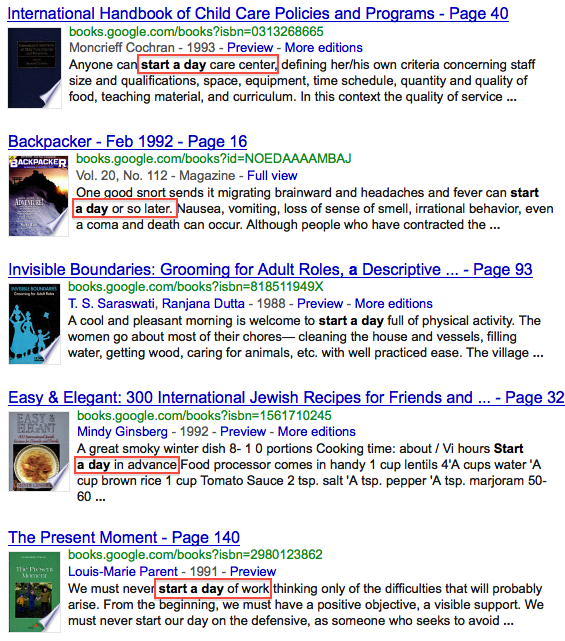When you talk about any day in general, which article would you prefer in the expression "start a/the day."
Can you please explain the logic behind your choice?
I searched for some context in the Corpus of Contemporary American English, where the phrase seems to mean any day in general (at least, as it seems to me), but the article usage is different. All in all, the seems to prevail.
When she rouses me out of a dead sleep in the morning with soft kisses and she acts all playful and cuddly. I can't get enough of that. It's my favorite way to start a day.
I often start the day by puttering--watering the garden, sweeping my studio floor, putting on some inspiring music.


